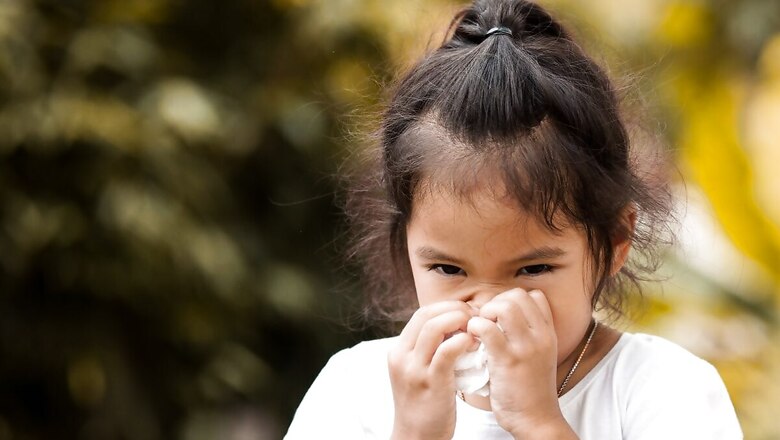
views
An important global impact that has been noted is the early start of seasonal allergies. Warmer winters and earlier springs due to unseasonal weather fluctuations are releasing pollen sooner than usual, which causes allergies in those who are sensitive to develop before the expected season.
Research has indicated that plants are experiencing longer growth seasons, and that the pollen season is beginning earlier and lasting longer. For allergy sufferers, this prolonged exposure lengthens the duration of their suffering and may intensify symptoms.
The early start of allergy season has several negative effects on health. Early and sustained allergen exposure might exacerbate asthma attacks in people with chronic respiratory disorders like asthma. These people may experience more frequent and severe episodes. Additionally, the overlap of allergy symptoms with cold and flu season creates diagnostic challenges. Patients often mistake allergy symptoms for viral infections, leading to unnecessary antibiotic use or delays in proper treatment. This confusion can complicate effective management of both conditions, emphasizing the need for accurate diagnosis and appropriate care.
Here are some common recommendations for preventing and managing allergy symptoms:
- Consult your doctor at the earliestThe doctor would examine you and recommend antihistamine or nasal or inhaled medications at the first sign of symptoms or even before symptoms start if early pollen counts are high. Early intervention can help control symptoms before they become severe, reducing overall discomfort and preventing complications.
- Keep Indoor Air Clean Maintaining clean indoor air is crucial for reducing exposure to pollen. To collect pollen particles, use air purifiers equipped with High Efficiency Particulate Air (HEPA) filters. Close windows and doors on days with high pollen counts to keep outside allergens inside. Additionally, regularly change air filters in your home’s Heating, Ventilation, and Air Conditioning (HVAC) system to ensure optimal air quality.
- Personal HygieneAfter spending time outdoors, shower and change clothes to remove pollen from your body and clothes. This practice helps reduce the amount of pollen brought into your home, lowering the potential for indoor allergen exposure. For individual’s sensitive to pollen, wearing personal protective equipment such as masks or face shields when going outside can be beneficial. Additionally, maintaining a set of clothes specifically for outdoor use helps minimize pollen exposure indoors. These measures, combined with other precautions like keeping windows closed during high pollen seasons and regularly cleaning living spaces, can significantly reduce pollen-related symptoms.
By following these preventive measures, individuals can significantly reduce the severity and duration of allergy symptoms, improving their overall quality of life.
In conclusion, the intersection of climate change and health is becoming increasingly evident. The early arrival of allergy season is just one example of how our environment impacts our well-being. By understanding these connections and taking preventive measures, we can better manage the health challenges posed by our changing world.




















Comments
0 comment